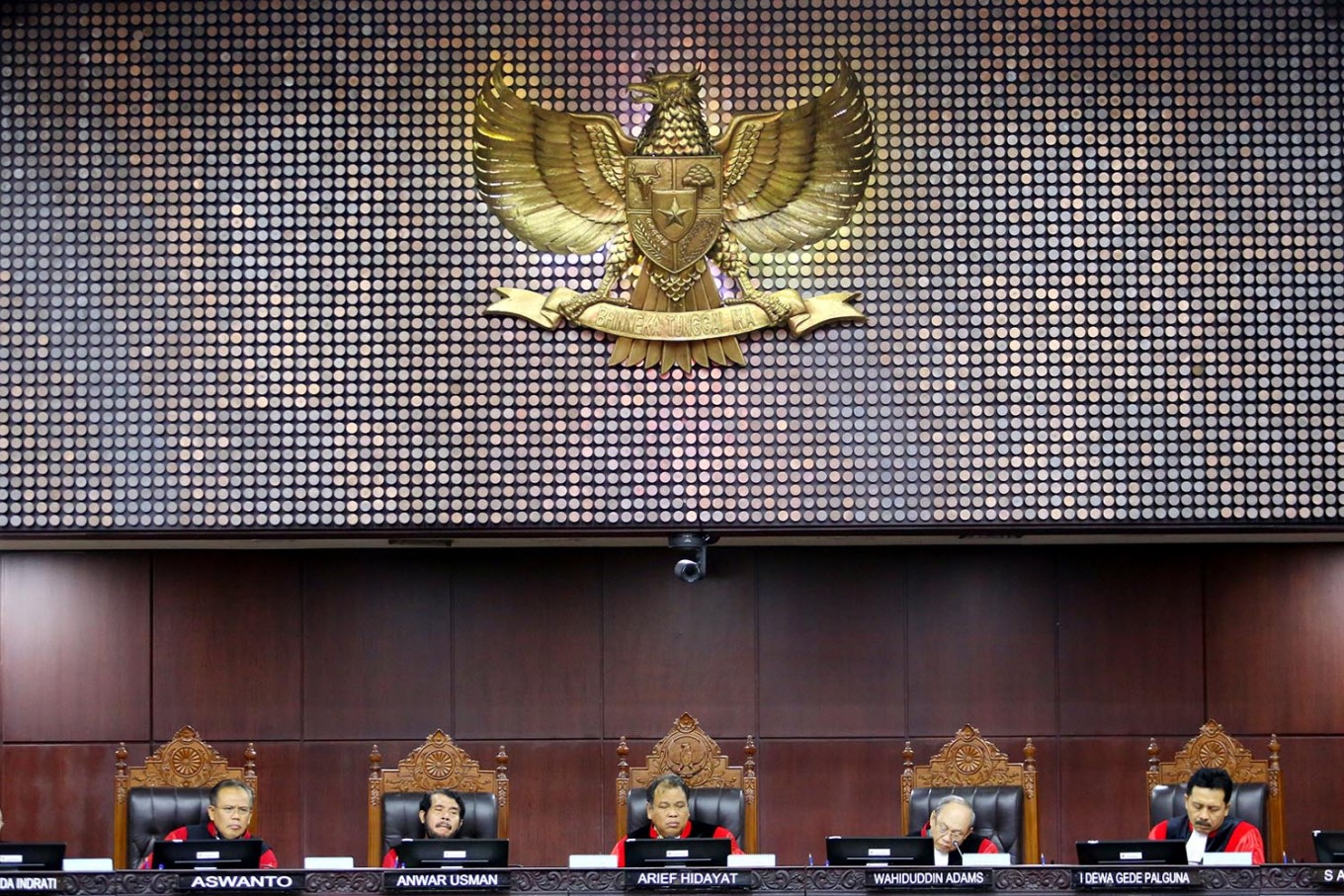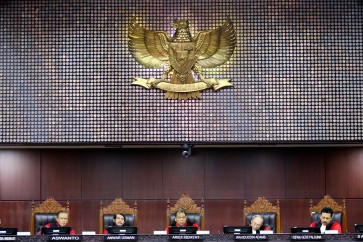Constitutional Court's dignity in jeopardy
The lenient punishment only reveals a lack of legal framework within Constitutional Court law when dealing with ethical violations allegedly committed by Court justices.
Change Size
 Court chief Arief Hidayat (center) leads a trial at the Constitutional Court, Jakarta on Jan. 12, 2017. (JP/Dhoni Setiawan)
Court chief Arief Hidayat (center) leads a trial at the Constitutional Court, Jakarta on Jan. 12, 2017. (JP/Dhoni Setiawan)
T
hat public faith in the Constitutional Court has declined to the lowest level is undeniable. It all happened after the Court’s ethics board found Court chief Arief Hidayat guilty of breaching the code of ethics for the second time.
In the most recent case, the board discovered Arief had lobbied House of Representatives politicians prior to his selection as Court justice for a second term last December, which should have made him unfit for his current post. Previously in 2016, the board had convicted him of committing an ethics violation for sending a letter to the Attorney General asking for special treatment for his relative who works in the Attorney General’s Office.
Analogous to a soccer game, a player who receives a second yellow card in a match will automatically get his marching orders. Additionally, the player will automatically receive a one-match ban. If the fouls are deemed serious the ban may be extended to two or three matches.
However, this is not the case of the Constitutional Court. As in the first case, the ethics board only imposed a light sentence, a formal reprimand, defying mounting demands from Muhammadiyah and corruption watchdogs GAK, Madrasah Anti Korupsi and ICW for Arief to be dismissed as both Court chief and justice for undermining the Court’s dignity.
The lenient punishment only reveals a lack of legal framework within Constitutional Court law when dealing with ethical violations allegedly committed by Court justices. In this sense, there is no clear mechanism as to whether a justice, who is found guilty of violating the code of ethics, must quit the Court or not. As in the Arief case, the board did not require him to step down simply because the law does not ask it to do so.
However, in coping with violations of ethics we, including state actor, civil society and private sector, cannot only depend on and comply with existing regulations. Moral standards, integrity values and ethical norms should be an inseparable part of public institutions and officials with or without regulations.
For the Constitutional Court, its dignity matters because of its duty as the guardian of the Constitution. Court justices, who are entrusted to protect the Constitution as the foundation of democracy and state principles, must therefore be morally clean.
















